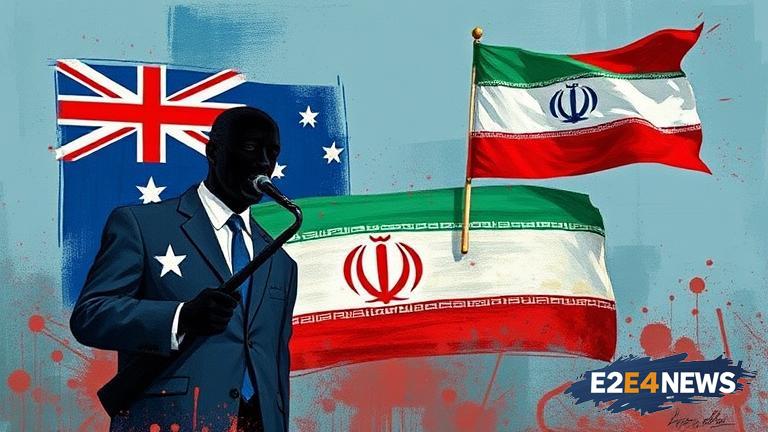In a shocking turn of events, Australia has publicly accused Iran of orchestrating antisemitic campaigns, further straining already tense relations between the two nations. The allegations come amidst a surge in hate speech and discrimination against Jewish communities worldwide. According to Australian officials, Iran’s alleged involvement in promoting antisemitic ideologies is a disturbing trend that warrants immediate attention and condemnation from the international community. The accusations are based on evidence suggesting that Iranian authorities have been secretly funding and directing antisemitic groups, both online and offline. This has led to a significant increase in hate crimes and discriminatory behavior against Jewish individuals and communities. The Australian government has expressed deep concern over the rising tide of antisemitism, emphasizing the need for collective action to combat this scourge. Iran, on the other hand, has denied all allegations, dismissing them as baseless and politically motivated. Despite the denials, the international community remains skeptical, given Iran’s history of promoting extremist ideologies. The United States, Canada, and the European Union have all expressed solidarity with Australia, condemning Iran’s alleged actions and reaffirming their commitment to combating antisemitism. The incident has sparked a heated debate over the role of governments in promoting hate speech and discrimination. Many experts argue that Iran’s alleged actions are a clear example of state-sponsored extremism, which poses a significant threat to global stability and security. Others have pointed out that the issue is more complex, involving a range of factors, including cultural, historical, and socioeconomic dynamics. As the situation continues to unfold, it is clear that the international community must take a firm stance against antisemitism and all forms of hate speech. This includes holding governments accountable for their actions and promoting education, tolerance, and understanding. The Australian government has announced plans to increase funding for programs aimed at combating antisemitism and promoting community cohesion. Similarly, other countries are being urged to take proactive measures to address the root causes of hate speech and discrimination. The incident has also highlighted the importance of social media platforms in spreading hate speech and extremist ideologies. Many experts are calling for greater regulation and oversight of social media companies, to prevent the spread of harmful content. In conclusion, the allegations against Iran have sparked a critical conversation about the need for collective action against antisemitism and hate speech. As the international community continues to grapple with this complex issue, it is clear that a comprehensive and multifaceted approach is needed to address the root causes of discrimination and promote a culture of tolerance and understanding. The situation is being closely monitored by governments, civil society organizations, and human rights groups, who are all working together to promote a more just and equitable world. Ultimately, the fight against antisemitism and hate speech requires a sustained and collective effort, involving governments, civil society, and individuals from all walks of life. By working together, we can create a world where everyone can live without fear of discrimination or persecution, and where diversity and inclusivity are valued and celebrated.
